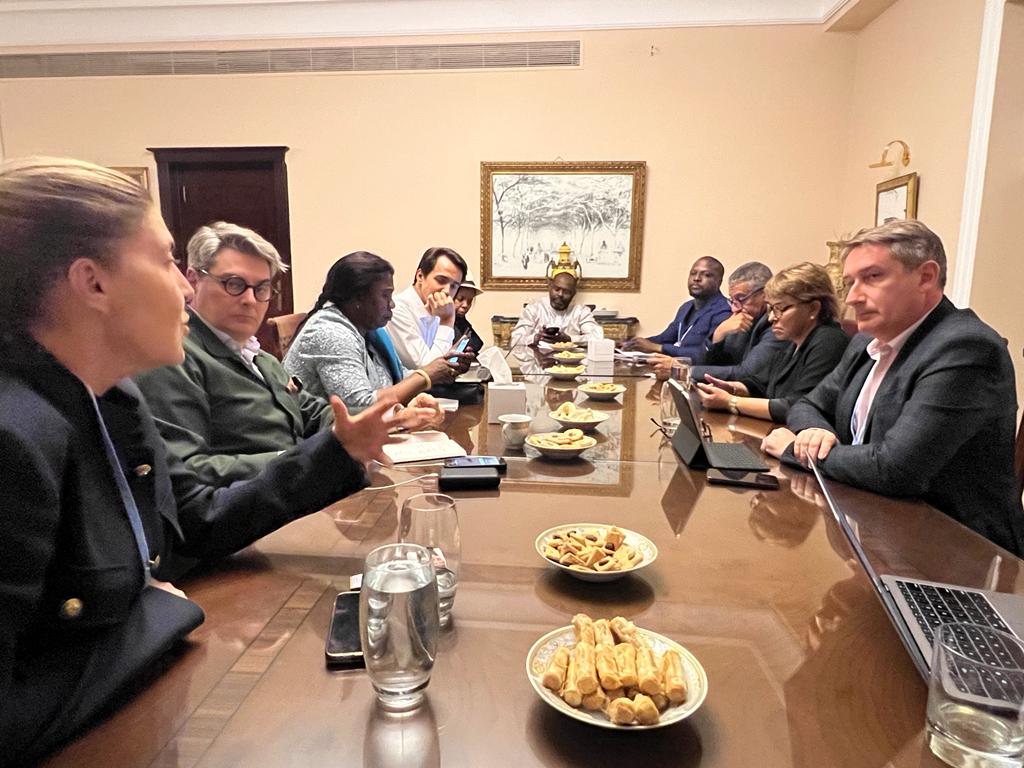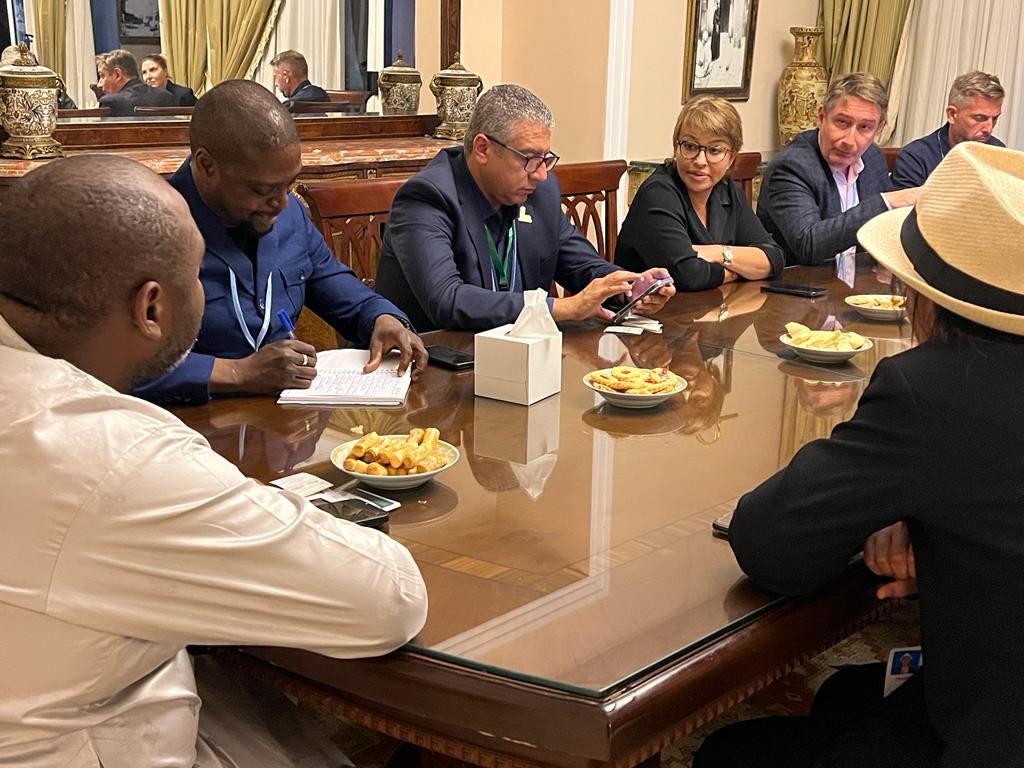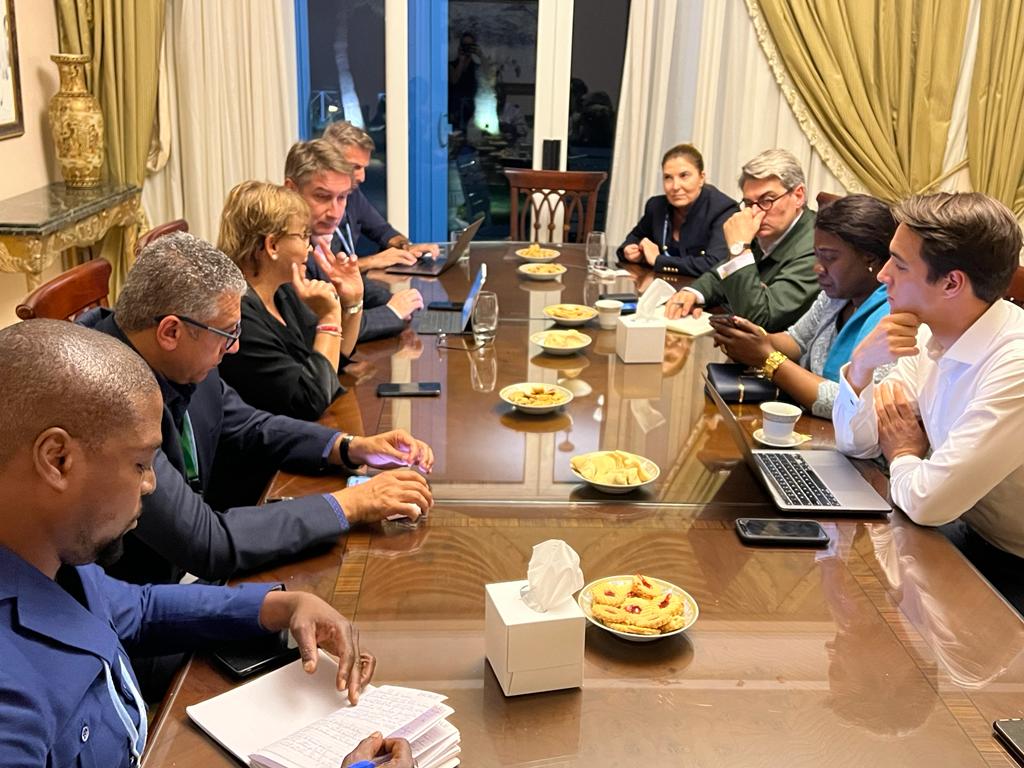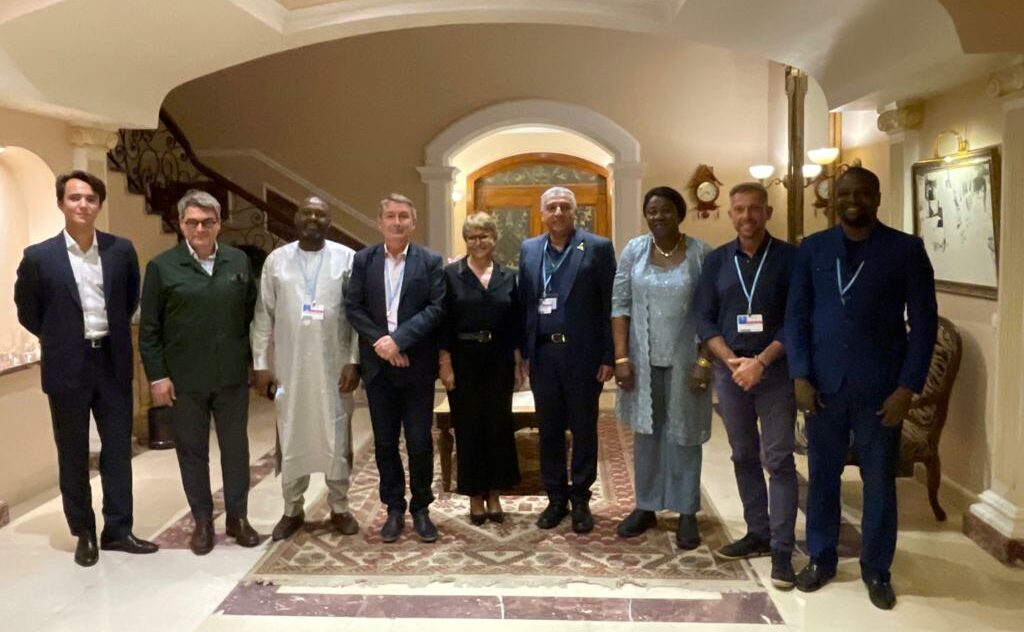As COP 27 slowly draws to a close, The Bridge Tank continues its efforts in favour of climate justice in Sharm El Sheikh, Egypt.
On Thursday, November 17th, 2022, The Bridge Tank and Liberal International joined forces to organise a side event on climate finance – “Towards a balanced, empowered, North-South blended climate finance for mitigation and adaptation.” The Bridge Tank was represented by Dr. Joel Ruet, President, and our board member Dr. Hakima ElHaite, President of Liberal International.
The Bridge Tank made use of its long experience on the topic of climate finance, having contributed to the Task Force on “Climate change and finance” of the T20 for the past 6 years.
Participants to the panel included Ms. Kadiatou N’Diaye, former Minister of the Environment, Water, and Forest of Guinea, representatives of the Brazzaville Foundation, directors of the Agricultural Bank of Niger, and the President of the Egyptian conservative party.


The panel discussion addressed the current state of climate finance and adaptation finance. While a doubling of efforts for the latter was included in the Glasgow Climate Pact, bringing adaptation finance from around USD 20 billion to USD 40 billion, many challenges remain, as some of the wealthiest countries are not keeping their side of the bargain.
The President of the Congo Basin Blue Fund thus left COP 27 to denounce this lack of financial support. In 2021, US President Joe Biden pledged USD 50 million to the Adaptation Fund but the contribution never materialised. This year, Biden increased the United States’ promise to USD 100 million. The example of the Congo Basin is emblematic of the gap between institutional promises and the actual reality on the ground.
Today’s USD 82 billion in climate finance for the Global South are 60% of private loans. Despite facing the most dire effects of the current environmental crisis, the African continent only receives 5% of these funds. This shows “neither a form of obligation nor of solidarity”, claimed Hakima el Haite. The political consensus in the Global South is therefore that funds are lacking, which is all the more alarming when considering the Intergovernmental Panel on Climate Change’s (IPCC) forecast that only 8 years are left before the situation becomes critical.


Having established that, the panel discussed concrete ways of adapting financial tools to make for a more efficient and balanced climate finance. Some of the main challenges raised here were the difficulties of accreditation for the Green Climate Fund and the Adaptation Fund. Mobilising necessary funds was likened to an uphill battle. While being indeed accessible, the mobilisation of sums around USD 10 million is slowed down by protracted procedures. The challenge is even greater for scale up projects with funding needs in the hundreds of millions USD.
The panel thus sought to find innovative funding sources and efficient disbursement channels.
Profit sharing agreements could be one possibility. These would require national frameworks for private contracts establishing profit sharing agreements where private and public funding would be poured into a common public fund dedicated to concrete projects. This procedure is for example already used by oil companies.
Despite only being a parallel mechanism, carbon credits could also include a direct transfer to public assistance beneficiaries.
Discussions on alternative financing seem to have abandoned the idea of taxation of the Global North since COP21-22. Solidarity is therefore not an appropriate description of the current financial processes. With 80% of African oil production being operated by foreign companies, the USD 100-billion climate finance pledge should be defined as a debt the North owes the South. But the current climate finance’s reliance on loans has the opposite effect, creating additional South to North debt.
Other ideas are centred around a renewed system of governance. The lack of bankability, transparency and competence associated with the Global South reflects the North’s lack of confidence in the South. While challenges to co-management and co-financing are also partly found in a mismanagement of African resources and wealth, which impedes its ability to effectively finance adaptation and mitigation itself, new mechanisms must be developed to turn this North-South defiance into mutual confidence.

Establishing incubators working towards large-scale structuring projects could be one way of achieving this. Working on co-management and co-governance is thus an encouraging prospect, as it is already well established within other structures, e.g. business angels or investment funds.
Another key point discussed on the panel was the idea of reversing conditionalities and for Africa to have the power to impose conditionalities. These could for example include the requirement for funders to be present on the ground and thereby encourage the emergence of local research departments and local development companies. One main challenge is therefore for both states and international funders to support the emergence of African and sub-regional multinational companies.
The issues of human resources and insufficient administrative capacity building in the South must also be connected to the complexity of international procedures. Encouraging signs can be found in the successful examples of the Micro Finance Program of the Global Environment Facility (GEF) which facilitates administrative procedures.
Finally, questions of innovative bottom-up finance provided another key talking point to the panel. To ensure complex assets have simpler assets as securities, a pan-African fund of security and risk mitigation would be needed.
The question of land guarantees also needs careful attention in order to develop a system which would aim, for example, for projects to be funded at 95% through grants and 5% coming from the community or guaranteed by private banks. The question remains whether these would be accepted by bilateral agencies.
Nevertheless, commercial banks, as the example of Niger shows, are ready to go ahead with such projects because of the emergency to take action. Every year Niger loses 100,000 ha to desertification, making the need for funding all the more pressing.


